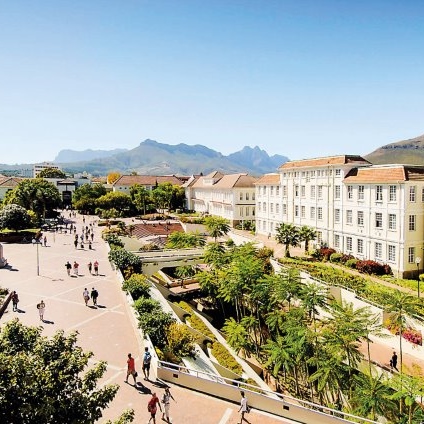
Featured Item

Israeli academics reject university’s reconciliatory statement
TALI FEINBERG
The Israeli delegates pulled out of the conference after their names were removed from the academic programme. This followed a call for an academic boycott of the event by anti-Israel activists. The academics say that the SAJBD and university are missing the point, and believe that they should rather not have put out their statement.
Professor Arie Nadler – who was supposed to present his research at the conference – expressed deep disappointment. “A key element in ameliorating past wrongdoings is the truth. Their statement is a ‘political’ effort to smooth the edges, and ignores truth,” he wrote to the SA Jewish Report from Israel.
“I did not ‘end up not attending’ because I felt ‘unwelcome’. Also, this was neither a matter of ‘perception’ nor an issue of ‘guaranteeing peace and security’. The truth is: Israeli scholars had been actively excluded from the academic programme.”
Following the meeting with the SAJBD, Professor Wim de Villiers, the Rector and Vice-Chancellor of Stellenbosch University, wrote that the university’s leadership “expressed regret that the Israeli academics ended up not attending the conference”, and that “scholars from Israel ended up not participating because they felt unwelcome by the manner in which the university engaged with anti-Israel activists. This perception of exclusion was not intended by the university, and we regret this and the subsequent loss of the important Israeli voices at the conference.”
At the meeting, Professor Thuli Madonsela, the Law Faculty Trust Chair for Social Justice, stressed that the university’s actions were aimed at ensuring peace and security for the conference following calls to exclude Israeli participants. It had never been its intention to undermine academic freedom, nor to make Israeli participants feel unwelcome.
Both the SAJBD and the university emphasised that academic freedom should be embraced, defended, and never be taken for granted. “We continue to welcome academics from all over the world at Stellenbosch University, including scholars from Israel,” said De Villiers. The conference was titled “Recognition, Reparation, Reconciliation: The Light and Shadow of Historical Trauma”, and was organised by Professor Pumla Gobodo-Madikizela, the Research Chair for Historical Trauma and Transformation at the university.
While the SAJBD and the university were happy, the Israelis explained why they were not.
According to Nadler, “The statement does not include an assumption of responsibility, or an apology. I would have expected differently from a society built on the noble foundations of truth and reconciliation. It would have been better if this statement had not been made.”
Professor Raya Morag, who was also supposed to be at the conference, agreed. “This statement is but another denial by Stellenbosch University of its outrageous behaviour towards the Israelis. It is a shame.”
SAJBD National Director Wendy Kahn said that at the time of the impasse with the university last year, Madonsela asked SAJBD President Mary Kluk if she [Madonsela] could facilitate the engagement between the university and the SAJBD.
Kahn said this meeting was important because, “It was important to sit around the table and discuss the issues face to face, to get clarity on what had transpired, and find a constructive way forward.”
She said the SAJBD wanted an assurance from the university that there was no policy of boycotting Israeli universities. “It became clear in the meeting that the intention was never a BDS agenda,” said Kahn.
“Protests are a way of life in South Africa, and certainly on our campuses. Just as it is the protester’s constitutional right to object to issues, it is every South African’s right to freedom of expression,” she continued.
“Universities and all South Africans need to guard freedom of expression fiercely, and not be bullied into abandoning these values. The only way to respond to bullies is to stand your ground and guard your principles. We believe that following this incident, Stellenbosch will defend academic freedom in spite of threats and intimidation.
“We commend many of our academic institutions for standing up to BDS bullying, including the University of Cape Town, which refused to cower to BDS pressure last year to cancel the International Debating Championships. [The University of the Witwatersrand] too stood firm when it hosted the Zamir Jazz Quartet.”
Kahn said that Madonsela had apologised on behalf of the university, and that the board was encouraged to learn that Stellenbosch was currently collaborating with Israeli academics.
“The university appreciated the opportunity to engage with the SAJBD on the issue, which has led to our joint statement,” said Gobodo-Madikizela. “We look forward to future engagement with the SAJBD on issues of mutual benefit and interest.”




